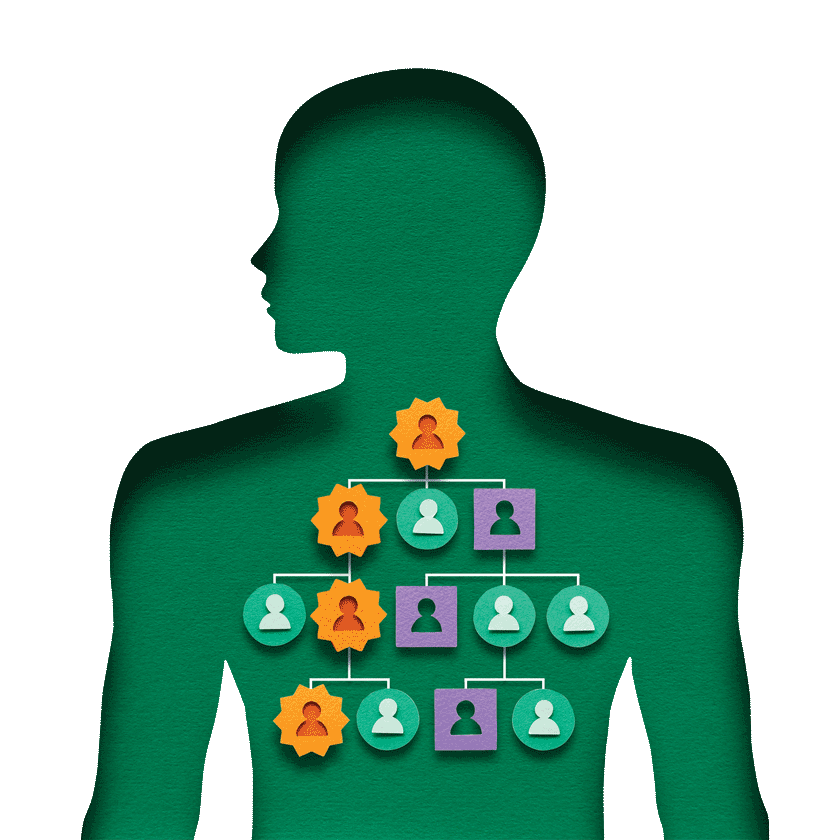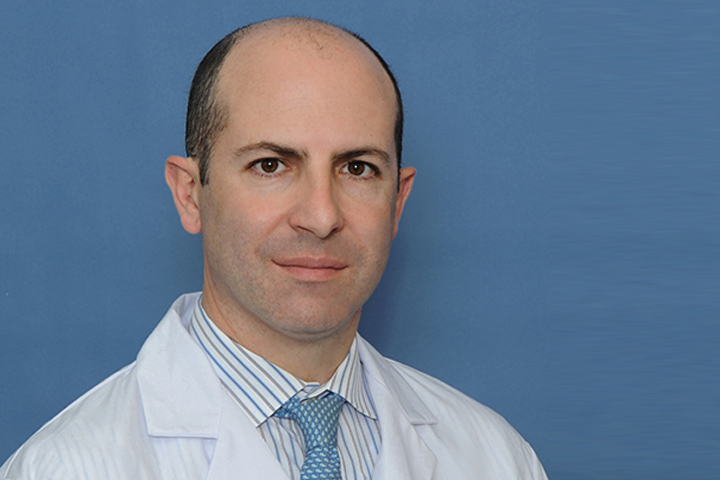Genetic Testing Can Help Those You Love

Pancreatic cancer is known to have a genetic component—the disease is more common in people who carry certain mutations.
A program at Columbia University Medical Center focuses on genetic testing as part of an effort toward early detection of pancreatic cancer. Many of the patients who join the Muzzi Mirza Pancreatic Cancer Prevention and Genetics Program are motivated to learn more about their condition—not only for themselves, but for their loved ones. Around 130 new patients visit the Columbia University center for genetic testing each year, and hundreds more are monitored through regular screenings and preventive treatment.
The Muzzi Mirza Pancreatic Cancer Prevention and Genetics Program is part of the Pancreas Center at New York-Presbyterian/Columbia. The Pancreas Center is one of the largest volume practices of its kind in the country. It integrates radiation, surgery, oncology, imaging, and nutrition services. The prevention and genetics program was founded by the family of Muzzafar “Muzzi” Mirza after his death of late-stage pancreatic cancer in 2007. Muzzi and his wife, Susan, wanted to ensure that the Pancreas Center developed a program focused on prevention techniques and the role of genetics in the development of pancreatic cancer so that other families might be spared the devastation of receiving a pancreatic cancer diagnosis at such a late, largely untreatable stage.
Testing for Early Detection
“Our prevention and genetics program focuses on screening for the early detection of pancreatic cancer and genetic risk assessment for inherited cancer syndromes associated with pancreatic cancer,” says director Fay Kastrinos, M.D. “As we expand our knowledge of the disease through public awareness, innovative research, and vigilant screening of those at high risk, we are making hopeful, new strides in beating back this cancer’s terrible odds.”
Kastrinos, a gastroenterologist, works closely with a genetic counselor and other colleagues at the Pancreas Center to help patients understand the genetic risks for pancreatic cancer. For those who have not developed the disease, she can assess their risk based on their personal and family history of cancer and the likelihood that they may carry an inherited gene associated with a predisposition to cancer development. About 10 percent of pancreatic cancers are linked to family history of cancer. The possibility of an inherited cancer syndrome includes pancreatic cancer as part of a constellation of cancers; an example is breast-ovarian cancer syndrome associated with the BRCA gene and Lynch syndrome associated with DNA mismatch repair genes.
The Role of Genetics in Pancreatic Cancer Treatment
For those who have been diagnosed with pancreatic cancer, genetic testing can provide additional insight into their disease, and help determine if family members should also be tested.
“There is growing consensus that every newly diagnosed patient with pancreatic cancer should consider genetic testing since results can also impact decisions regarding their treatment,” Kastrinos says. “Furthermore, at-risk family members may benefit from genetic risk assessment and testing as results may guide their cancer prevention and screening recommendations.
“It can feel overwhelming to a patient with pancreatic cancer and their healthy family members. But it’s important to educate patients and families, and in the end, many of them feel empowered by the knowledge they receive from genetic risk assessment and testing.” If the testing indicates their loved ones are at risk for pancreatic and/or other cancers, Kastrinos and her colleagues can help chart a proactive and personalized prevention plan, including regular cancer screenings, lifestyle modifications, and monitoring of any pre-malignant conditions.
“We have the ability to fine-tune overall cancer screening and prevention services,” Kastrinos says. “With early detection, we aim to improve outcomes. Our patients with pancreatic cancer are motivated to help their families with information. These results mean something for their children.”
In addition to its comprehensive clinical practice, the Muzzi Mirza Pancreatic Cancer Prevention and Genetics Program also has a robust research program. Kastrinos is working on developing new clinical risk assessment tools and prediction models, while her colleagues are studying the biology of pancreatic cancer and evaluating biomarkers for screening and early cancer detection in those individuals at highest risk for the development of malignancy.
To learn more about genetic testing read the “The ABCs of Genetic Testing.”






